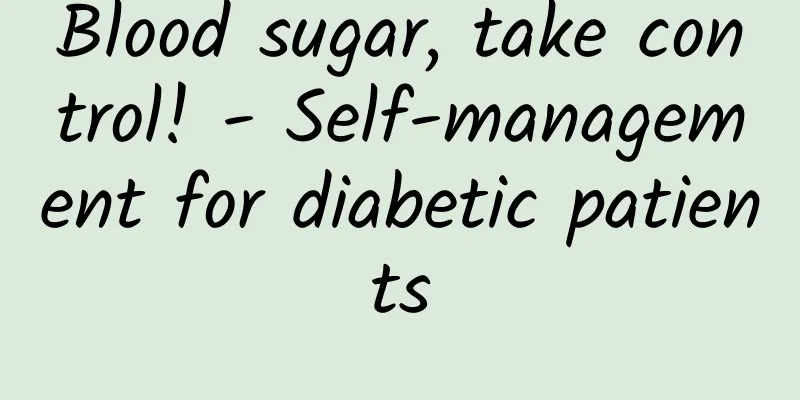Is it necessary to extract wisdom teeth?

|
Author: Huo Wenyan China Rehabilitation Research Center Reviewer: Wang Haifeng, Chief Physician, China Rehabilitation Research Center Many people’s first reaction when they hear that they have wisdom teeth is: “Ah? I have wisdom teeth? Do I have to have them removed? Will it hurt?” In fact, not everyone has wisdom teeth, and not all wisdom teeth that grow need to be removed. First, let’s take a look at what wisdom teeth are. Wisdom teeth refer to the third molar in the human mouth, which is exactly the eighth tooth from the front teeth. There are also great individual differences in the growth of wisdom teeth. Usually, a person will have four wisdom teeth symmetrically on the upper, lower, left and right sides. Some people will have less than four, some people will not have any, and very few people will have more than four wisdom teeth. The age at which wisdom teeth erupt from the gums also varies greatly. Some people erupt between the ages of 16 and 20, some people erupt later, such as between 30 and 50 years old, and some people never erupt throughout their lives. How did you find out you had wisdom teeth? Normally erupted wisdom teeth or wisdom teeth that have not erupted at all are usually not easy to detect. Most patients come to the hospital for treatment due to pain during the growth of wisdom teeth (growing pains or pain from squeezing adjacent teeth), joint pain when opening the mouth (temporomandibular joint disorder), swollen gums or facial swelling (i.e. wisdom tooth pericoronitis). Among them, wisdom tooth pericoronitis is the most common, that is, swollen and painful gums distal to the second molar. Some patients may even cause the spread of infection if they fail to seek medical treatment in time, resulting in asymmetry of the entire face, and obvious swelling, redness, and pain on the inflamed side of the face or mandible. Some patients are discovered when taking curved tomographic films during their visit to the Department of Dentistry, and usually have no obvious symptoms. Why do people get scared when talking about wisdom teeth? The main reason is that many people's wisdom teeth need to be extracted, and most patients' wisdom teeth are not loose when they are extracted, and there are even many impacted wisdom teeth, which makes tooth extraction more difficult and causes severe postoperative reactions, thus causing people to be afraid of wisdom tooth extraction. Figure 1 Copyright image, no permission to reprint So what kind of wisdom teeth must be removed? (1) Impacted teeth : The most common reason for wisdom teeth extraction is impacted wisdom teeth. There are many reasons for impacted wisdom teeth, but the main reason is insufficient development of the jaw and lack of sufficient space to accommodate all permanent teeth. During the evolution of human beings, people eat less and less rough food, and meat becomes softer and easier to chew after cooking. Food becomes more and more refined, and the chewing frequency becomes lower. The upper and lower jaws of humans become smaller and smaller, but the number and size of teeth have not changed, so there is often not enough space to accommodate the third molars. Therefore, wisdom teeth often cannot erupt upright in the normal position. This is the most common cause of impacted wisdom teeth. Impacted wisdom teeth can affect adjacent teeth (i.e. second molars), leading to caries on the crown and neck of adjacent teeth, absorption of crowns and roots, and even loosening and falling of adjacent teeth. It may also cause crowding of teeth and produce pain. (2) Causing pericoronitis : When wisdom teeth partially erupt, the occlusal surface of the wisdom teeth is often covered by soft tissue, forming deep pockets where dirt can easily accumulate, which become a good place for bacteria to grow, thus leading to the formation of pericoronitis. Figure 2 Copyright image, no permission to reprint (3) Causing odontogenic cysts and tumors : Some wisdom teeth may form odontogenic cysts and tumors, which need to be removed promptly and the cyst wall cleaned or the tumor removed directly. (4) Tooth decay (i.e., cavities) : Wisdom teeth are located in the oral cavity near the throat, where food easily accumulates, attracting bacteria to form cavities. (5) Difficult to clean : Wisdom teeth are the last teeth in the mouth and are difficult to clean. In addition, due to the malposition of wisdom teeth, food is often stuck between the wisdom teeth and adjacent teeth. If the stuck food cannot be cleaned in time, food spoilage and bacterial erosion can easily lead to caries on the collar surface of the second molars and damage adjacent teeth. (6) Missing opposing teeth : Not all people have four wisdom teeth. Some people do not have opposing teeth, that is, they lack teeth on the upper and lower sides to occlude them. Wisdom teeth without opposing teeth are prone to excessive eruption and elongation, causing food impaction, cavities in adjacent teeth, and affecting normal chewing, so they need to be extracted. Of course, not all wisdom teeth need to be removed. What kind of wisdom teeth can be retained? (1) There is enough space for wisdom teeth to erupt normally, and there is an opposing jaw to establish a normal occlusion relationship. (2) The tooth has erupted in the normal position, has normal opposing teeth, and has soft tissue covering the tooth surface. However, after removing the soft tissue, the crown surface can be completely exposed and establish a normal occlusal relationship with the opposing teeth. (3) When the second molar cannot be retained, if the wisdom tooth root has not yet fully formed, you can try to transplant the wisdom tooth to the second molar extraction wound to replace the missing second molar. If the wisdom tooth root has fully formed, you can consult an orthodontist to see if the wisdom tooth can replace the missing second molar through traction. (4) Wisdom teeth are completely buried in the bone, have no periodontal connection with adjacent teeth, do not compress adjacent teeth or nerves to cause pain, and can be retained, but require regular observation. Now that you know which wisdom teeth can be kept and which need to be extracted, some people may want to ask: Does it hurt to have wisdom teeth extracted? Wisdom tooth extraction needs to be performed under local anesthesia. Generally, you will not feel pain during the extraction process. However, after extraction, especially after the extraction of impacted teeth, it is very easy to have postoperative reactions such as local pain, swelling and limited mouth opening. Therefore, I will introduce to you the precautions before, during and after tooth extraction. 1. Preoperative examination Before removing wisdom teeth, infection must be ruled out first, and then X-rays need to be taken. Generally, curved surface tomography is required to determine the shape and position of wisdom teeth, such as high, middle, low, lip-cheek, tongue-palate, mesio-distal, etc. It is also necessary to determine the number, shape, and position of tooth roots, and the relationship with the inferior alveolar nerve canal or maxillary sinus, etc. Curved surface tomography can also be used to observe whether there are cysts or tumors around wisdom teeth. If the curved surface tomography determines that the position of the wisdom tooth is dangerous, or there are cysts or tumors around the wisdom tooth, CT scans are required to determine the position. 2. Extraction surgery The specific process of extraction varies according to the position and direction of wisdom teeth. For vertically erupted wisdom teeth, a sling or pliers can be used to dislocate the teeth directly after local anesthesia. In the case of mesial or horizontal impaction, the gums need to be cut open and the bone removed with a dental drill. After the crown of the wisdom tooth is exposed, if there is still obstruction from the adjacent teeth, the crown of the wisdom tooth needs to be cut off with a dental drill and divided into two or more parts. The cut crown is removed and the root is pushed out to avoid loosening of the adjacent teeth or damage to the inferior alveolar nerve. The wound needs to be sutured after extraction. Figure 3 Copyright image, no permission to reprint 3. Postoperative Care After wisdom teeth are removed, you need to pay attention to postoperative care. First, you need to prevent wound infection, and second, you need to reduce swelling, so that the trauma left by the tooth extraction can be healed in the shortest possible time and the discomfort symptoms can be alleviated. The details are as follows. (1) After tooth extraction, bite a cotton ball to stop bleeding for 30 to 50 minutes. Please follow the doctor's instructions. (2) After surgery, you can apply ice to the side of your face where the tooth was extracted to reduce facial edema and swelling. (3) Within 1 to 2 days after tooth extraction, it is best to eat warm liquid or semi-liquid food. Do not brush your teeth or rinse your mouth for 24 hours, and try not to spit. After 24 hours, you can use mouthwash to gently rinse the wound. (4) Do not engage in strenuous exercise in the short term after surgery. Patients with sutured wounds need to see a doctor 7 days after surgery to have the sutures removed. Following the above postoperative care can avoid unexpected situations, help accelerate wound healing, and restore chewing function as soon as possible. |
Recommend
A piece of flesh protrudes from the vagina
Female genital inflammation has gradually shown a...
How to treat sinusitis during pregnancy
Symptoms such as sinusitis may also occur during ...
A guy suffered from dry eyes syndrome after staying up late to watch the World Cup. Are your eyes dry?
Science Fiction Network, December 8 (Xu Mingyang)...
What are the dangers of ovarian hypertrophy?
There are many patients with ovarian hypertrophy ...
iPhone X shipment forecast lowered: only 30 million to 35 million units are expected to be shipped in 2017
KGI Securities analyst Ming-Chi Kuo lowered his i...
What tests should be done for irregular menstrual bleeding?
There will be vaginal bleeding after menstruation...
Does low progesterone mean ectopic pregnancy?
After pregnancy, patients will go to the hospital...
When I have the urge to urinate, I feel pain in my lower abdomen
Women experience lower abdominal pain as soon as ...
Can I eat pepper during menstruation?
You can't eat anything random during menstrua...
Are anechoic zones good or bad?
In our lives, many people will check the function...
What should I eat during confinement to lose belly fat?
During pregnancy, in order to meet the developmen...
How to effectively enlarge your breasts
Breast augmentation is something that many female...
What are the causes of ovarian cysts?
Ovarian cyst is a common gynecological disease in...
What are the benefits of eating water chestnuts for pregnant women? Precautions for pregnant women to eat water chestnuts
Water chestnut, an ancient aquatic vegetable, is ...
What to eat to remove moisture during the dog days How to remove moisture during the dog days
The dog days of summer are the hottest time of th...









